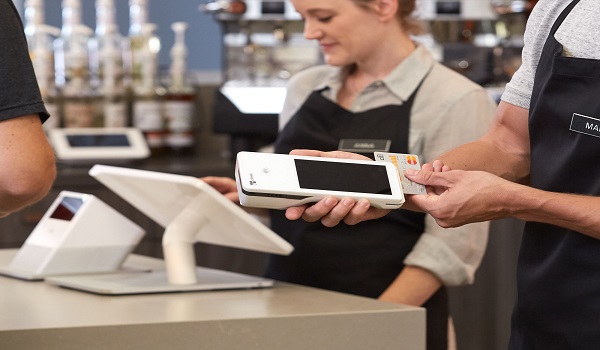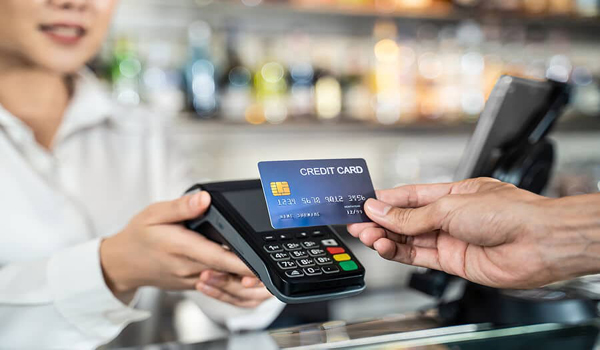
What exactly is credit card processing in E-commerce?
Credit card processing refers to the electronic process of accepting, verifying, and authorizing credit card payments for goods or services purchased in-person or online. When a customer uses a credit card for a transaction, the credit card information is securely transmitted to a payment gateway or processor.
The credit card processor acts as an intermediary between the merchant (seller) and the customer's credit card issuer, facilitating the transfer of funds from the customer's credit card account to the merchant's account. The processor verifies the card details, checks for available funds, and performs fraud checks to ensure the transaction is legitimate.
Steps in credit card processing
- Authorization: The processor first authorizes the transaction by verifying the customer's credit card details, such as card number, CVV, and expiry date. This step confirms that the card is valid and has sufficient funds available for the transaction.
- Settlement: Once the authorization is approved, the processor initiates the settlement process. This involves transferring the funds from the customer's credit card account to the merchant's account. Settlement usually occurs within a few business days, depending on the payment processor and banking system.
- Clearing: After settlement, the processor initiates the clearing process, where the funds are transferred from the customer's credit card issuer to the processor's account. It involves the reconciliation of funds and ensures that the correct amount is transferred.
- Payment Gateway Integration: In online transactions, a payment gateway is typically used to securely transmit credit card information between the customer, merchant, and processor. The payment gateway encrypts the data to protect it from unauthorized access.
- Transaction Fees: Credit card processors charge transaction fees for their services, including authorization, settlement, and clearing. These fees can vary based on factors such as transaction volume, risk level, and the payment processor's pricing structure.
Discover the evolving future of credit card processing
- In the future, credit card processing is expected to undergo significant changes to meet the evolving needs of e-commerce. With the rise of mobile and contactless payments, transactions will become more seamless and convenient. Advancements in biometric authentication will enhance security, eliminating the need for passwords or PINs.
- Data security will be a top priority, with greater efforts towards protecting customer information through tokenization, encryption, and other security measures. Artificial intelligence and machine learning will play a critical role in detecting and preventing fraud, with algorithms analyzing transaction data in real-time.
- Blockchain technology may revolutionize credit card processing by providing transparent and secure transaction records, streamlining settlement processes, and reducing transaction fees. Virtual cards and virtual wallets will become more prevalent, offering secure and convenient payment options in the digital space.
- Credit card processors will focus on enhancing fraud detection and prevention systems, leveraging AI and ML algorithms to identify and block suspicious transactions promptly. Personalized shopping experiences will be prioritized, with tailored rewards programs, targeted offers, and customized payment options based on individual preferences and spending habits.
- Regulatory changes, such as GDPR and PSD2, will impact credit card processing, aiming to protect consumer data and promote more secure and transparent payment processes. Lastly, alternative payment methods, such as digital wallets, cryptocurrencies, and buy now, pay later options, will gain prominence in e-commerce, and credit card processors will need to adapt and support these methods to meet consumer preferences.
Future of credit card processing in e-commerce
- Mobile and contactless payments are on the rise
- Advancements in Biometric Authentication
- The Increasing Importance of Data Security
- The Impact of Artificial Intelligence and Machine Learning
- The Role of Block chain Technology in Credit Card Processing
- The Future of Virtual Cards and Virtual Wallets
- Enhancements in Fraud Detection and Prevention
- The Shift towards Personalized Shopping Experiences
- The Impact of Regulatory Changes on Credit Card Processing
- The Growth of Alternative Payment Methods in E-commerce.
Credit card processing in e-commerce: Advancements and changes
- Mobile Payments: With the increasing use of smartphones and mobile devices, mobile payments are expected to become more prevalent. This includes contactless payments using Near Field Communication (NFC) technology and mobile wallet solutions. These methods offer convenience and enhanced security for customers.
- Enhanced Security: Data breaches and fraud are major concerns in e-commerce. To address these issues, credit card processing systems will continue to incorporate advanced security measures. This includes tokenization, encryption, and multi-factor authentication to protect sensitive customer information during transactions.
- Artificial Intelligence (AI): AI will play a significant role in credit card processing, helping businesses detect and prevent fraudulent activities in real-time. Machine learning algorithms can analyze patterns and behaviors to identify potentially fraudulent transactions and flag them for further investigation.
- Blockchain Technology: Blockchain technology offers a decentralized and highly secure method of processing transactions. It has the potential to revolutionize credit card processing by eliminating intermediaries, reducing processing time, and enhancing data privacy. Blockchain-based systems can provide transparency, traceability, and immutability, making them a promising solution for future credit card processing in e-commerce.
- Omnichannel Payment Solutions: Customers expect a seamless shopping experience across multiple channels. Omnichannel payment solutions enable businesses to accept credit card payments both in-store and online, creating a cohesive and convenient experience for customers. This includes features like buy online, pick up in-store (BOPIS), and unified customer profiles for personalized experiences.
- Subscription-Based Billing: Many businesses are adopting subscription-based models for their products or services. As a result, credit card processing systems will need to support recurring billing and ensure seamless subscription management. This includes automatic payments, plan upgrades, downgrades, and cancellations.
- International Payment Solutions: With global e-commerce expanding rapidly, credit card processing systems will need to support international payment methods and currencies. Businesses will need to consider localization, currency conversion, and compliance with local regulations to cater to a broader customer base.
- Enhanced Analytics and Insights: Credit card processing systems will increasingly provide businesses with detailed analytics and insights into their transaction data. This information can help identify trends, customer behaviors, and opportunities for growth. Advanced reporting and analytics can also improve fraud detection and risk management capabilities.
- Integration with other Systems: Credit card processing systems will continue to integrate with other e-commerce platforms and systems, such as inventory management, customer relationship management (CRM), and accounting software. This integration streamlines processes, improves efficiency, and provides businesses with a holistic view of their operations.
- Voice Commerce: As voice-enabled devices like smart speakers and virtual assistants become more prevalent, credit card processing systems will need to adapt to this new form of commerce. Voice commerce enables customers to make purchases using voice commands, and credit card processing systems will need to support secure voice-based transactions.
Conclusion
Overall the future of credit card processing in e-commerce will be characterized by increased convenience, enhanced security measures, personalized experiences, and support for alternative payment methods. As technology continues to advance, credit card processors will need to stay ahead of the curve and adapt to the changing landscape to ensure efficient and secure payment processing for online transactions.









